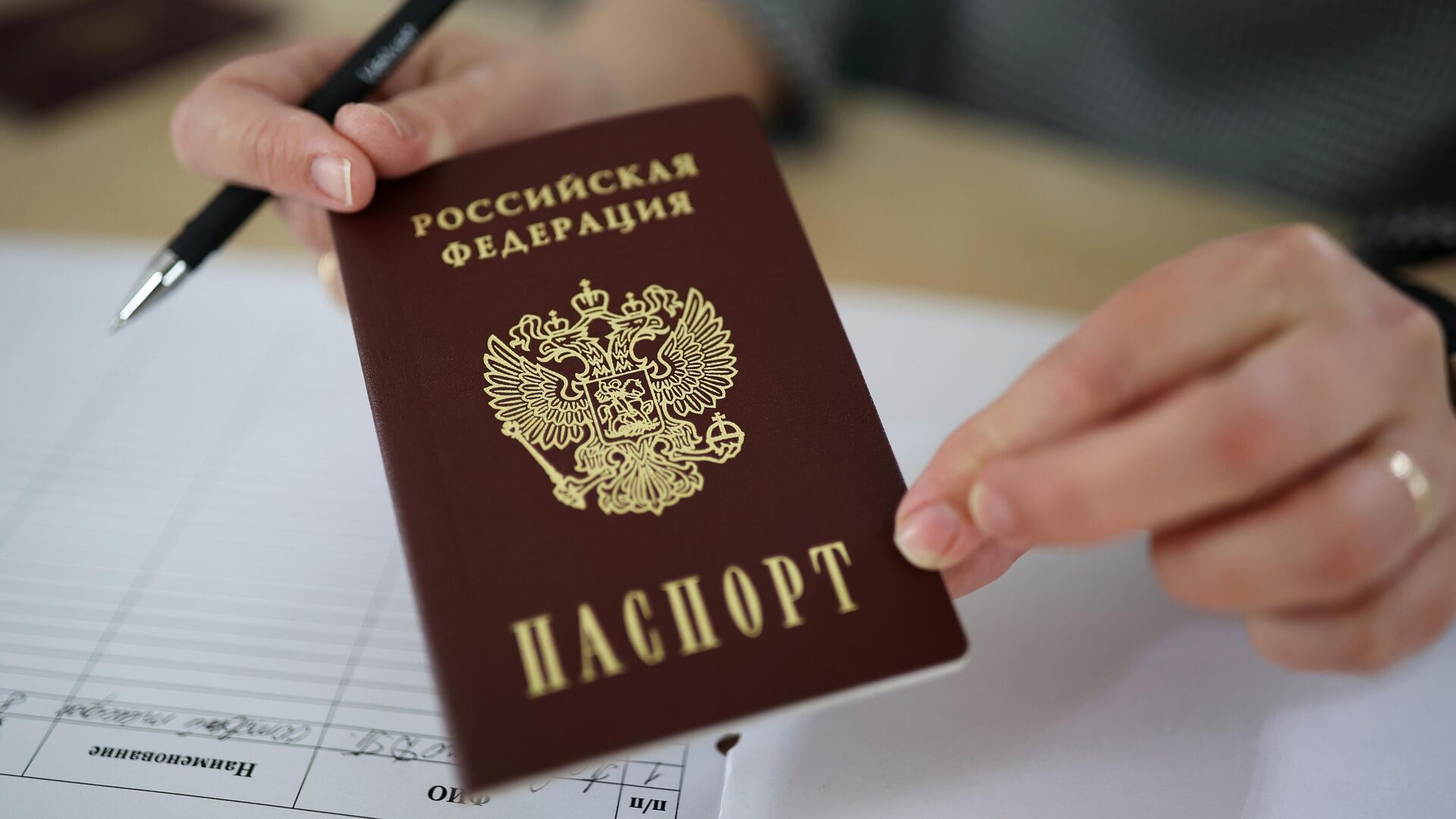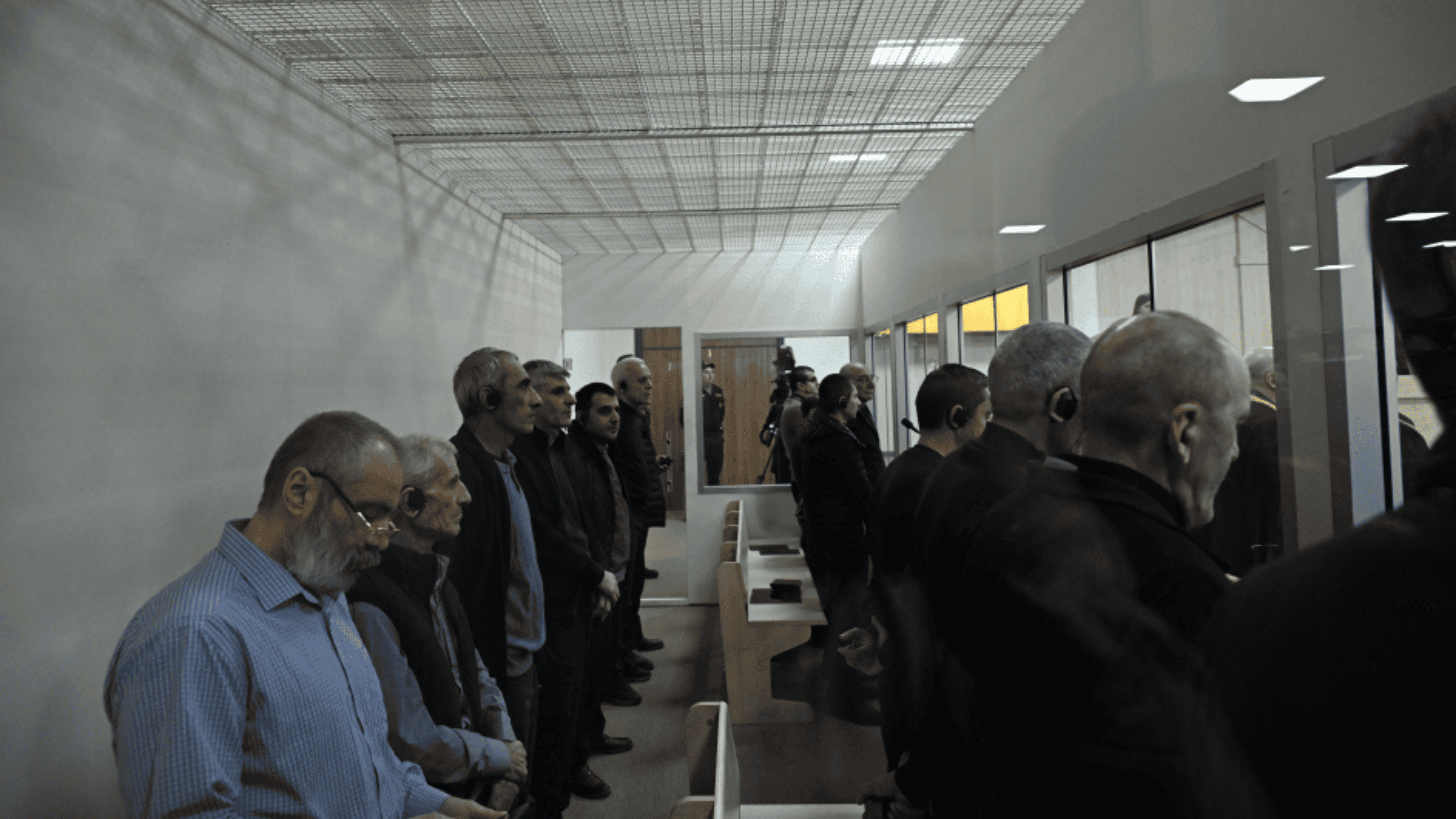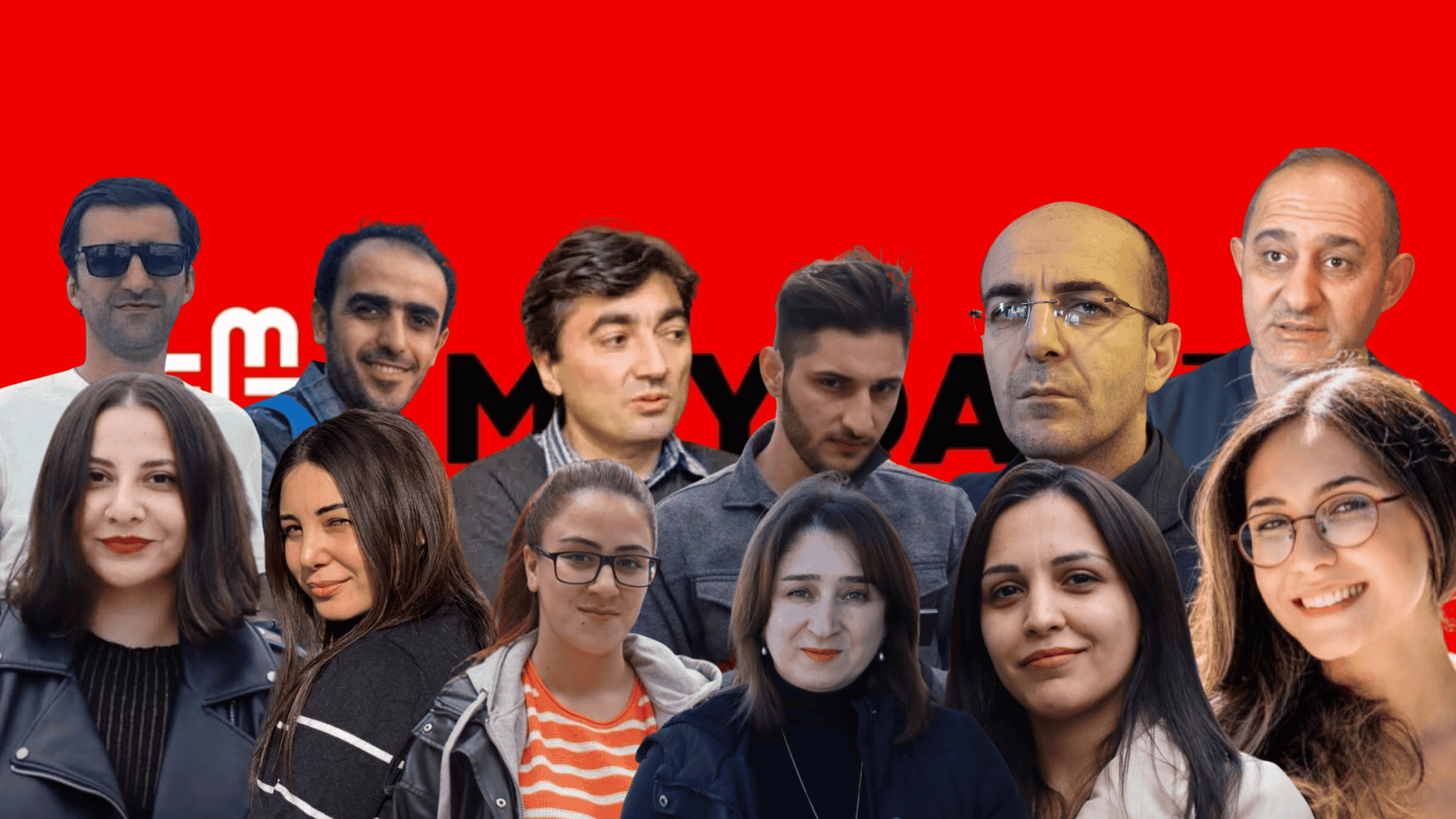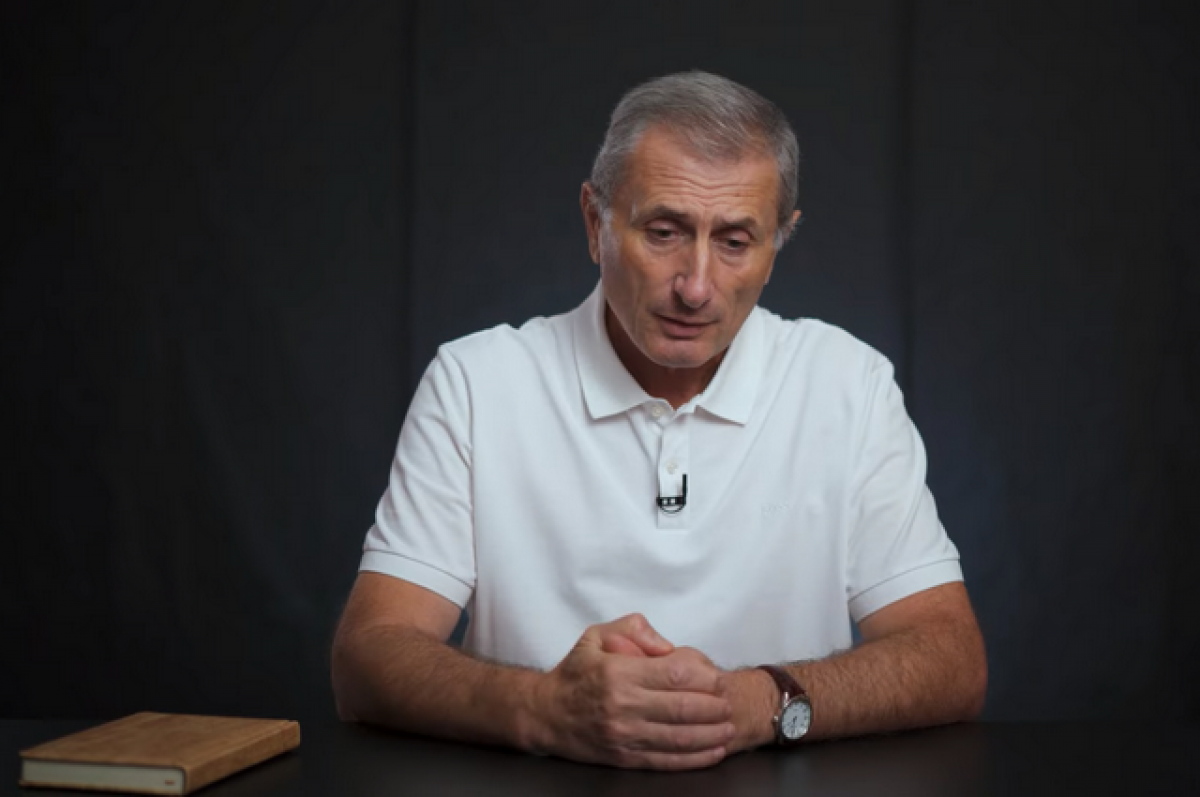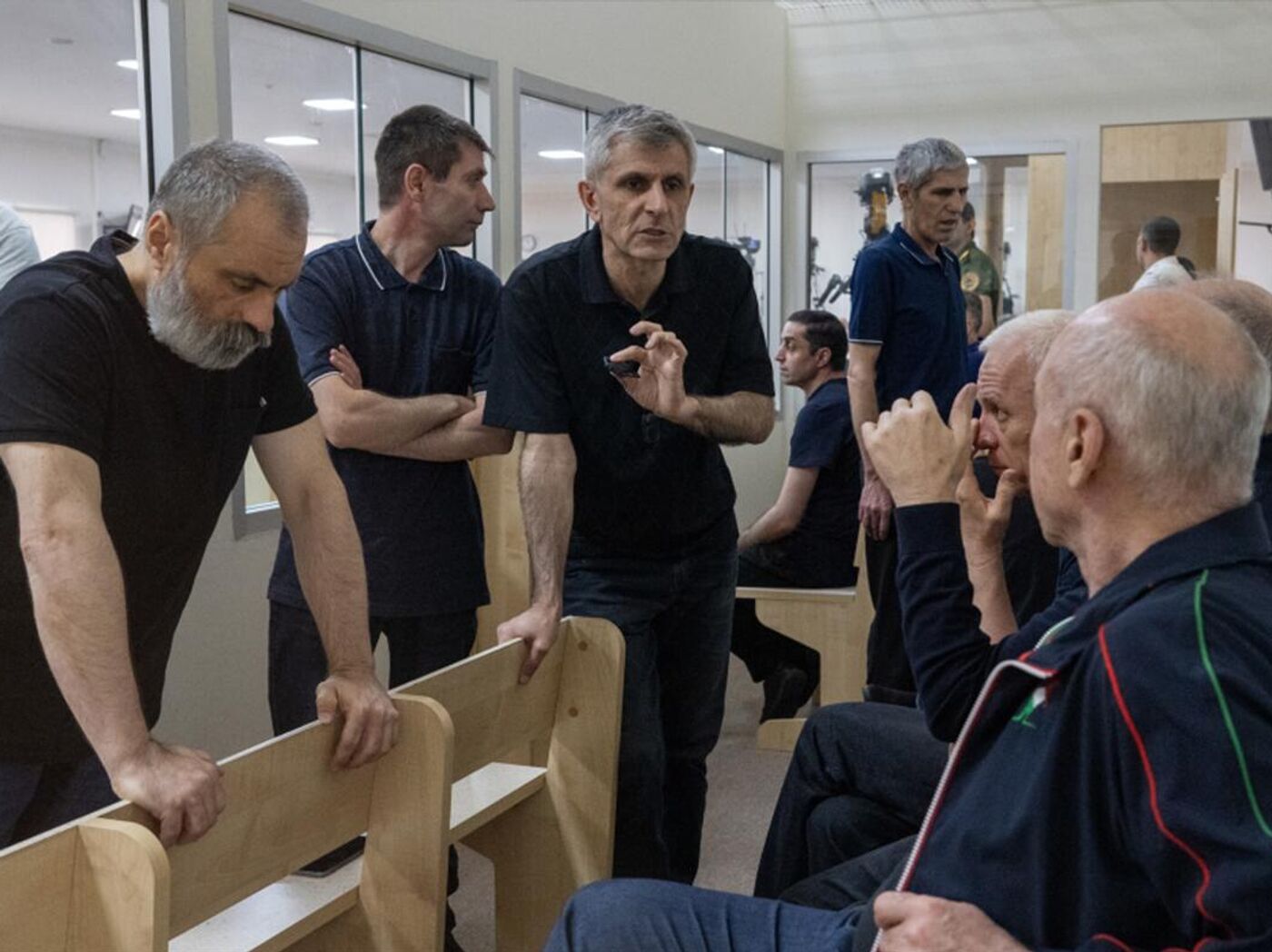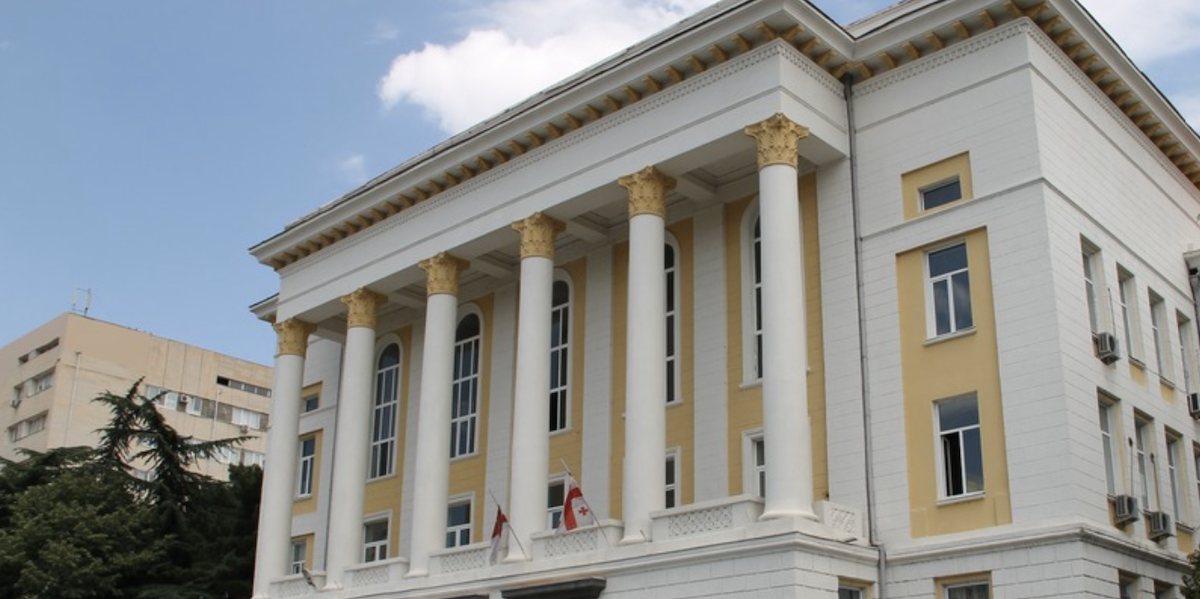"There are no independent media in Azerbaijan, and no one left to report injustice" –Ulviyya Ali's letter from prison
Ulviyya Alis on journalism in Azerbaijan
“It pains me that, while under arrest, neither I nor other journalists can carry out full-fledged investigative reporting on the latest shocking cases of social and legal injustice in Azerbaijan,” writes well-known journalist Ulvia Ali in a letter from a pre-trial detention cell, where she has been held for nearly a month, published by JAMnews.
She was arrested as part of the “Meydan TV case” and, like the others involved, is accused of smuggling. All the journalists firmly deny the charges and say they are being prosecuted for their honest professional work and critical reporting on the authorities.
Ulviyya draws attention to four recent tragedies: the mysterious death of 18-year-old Elgün Ibragimov in Ganja; the brutal murder of a 16-year-old girl in Sabirabad; the discovery of a minor’s body in Imishli; and the case of a 13-year-old girl who became a mother.
“All these cases point to a systemic problem. But there are no independent media left in the country—and no one to bring attention to it,” the journalist writes.
Ulviyya Ali (Guliyeva) was detained in the early hours of 7 May by officers of Baku’s Main Police Department, with the use of force, as part of the so-called “Meydan TV case.” On the same day, the Khatai District Court placed her in pre-trial detention for 1 month and 29 days.
On 6 December 2024, Meydan TV staff members Ramin Deco (Jabrayilzade), Aynur Ganbarova (Elgyunesh), Aysel Umudova, Aytaj Akhmedova (Tapdyg), Khayala Agayeva, and Natig Javadli were also detained. Later, journalists Shamshad Aga, Nurlan Libre, and Fatima Mevlamly were arrested in connection with the same case.
All have been charged under Article 206.3.2 of the Criminal Code: smuggling committed by a group of persons in collusion. Meydan TV maintains that these arrests are directly linked to their critical journalism.
We publish Ulviyyaa Ali’s letter without any alterations.
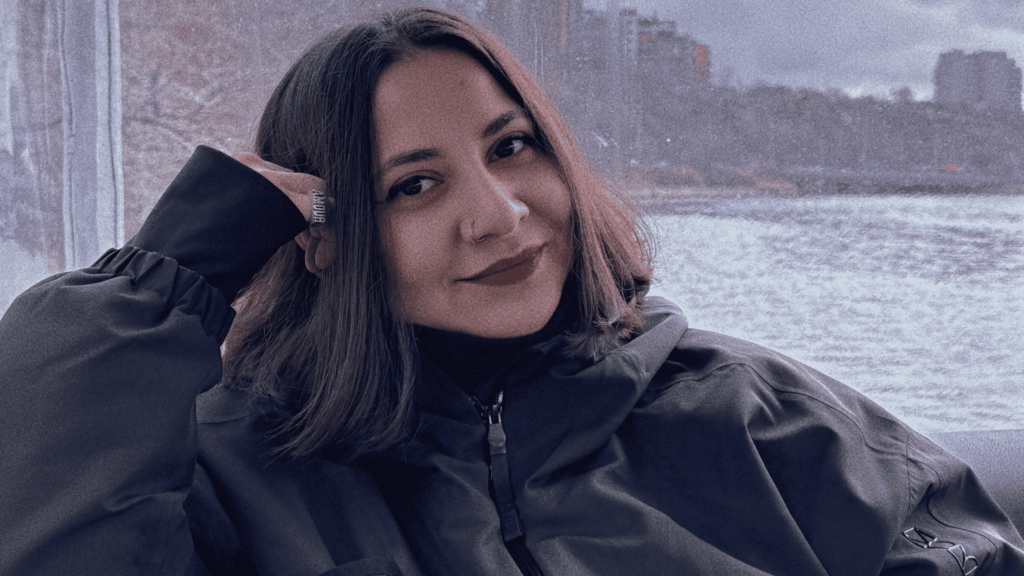
“It hasn’t even been a full month since my arrest, yet I’ve already received several reports of ongoing, systemic problems in our country. The tragic news about 18-year-old Elgün, killed in Ganja, the 16-year-old girl murdered and dumped in a canal in Sabirabad, and the body of a 15-year-old girl found in Imishli all sound a chilling alarm about the direction our society is heading.
What made me especially bitter was learning that people demanding a transparent investigation into Elgün’s death are being persecuted, pressured, and intimidated by the police.
It pains me deeply that, while under arrest, I cannot conduct proper journalistic investigations into these cases. The last time I was free, I carried out an in-depth investigation into the case of a 13-year-old girl from Aghjabedi who became a ‘mother’.
I presented the case in detail to the public. After the facts came to light, the General Prosecutor’s Office referred the case for retrial. Of course, the results of that retrial were never communicated to the public.
Pro-government websites use such cases solely for clicks and ratings, disregarding the trauma of the victims and often publishing content that blames the victim herself.
They go to great lengths to frame these tragedies as the result of ‘individual moral failures’, distracting attention from the real issue — the systemic root of the problem.”
- Jailed Azerbaijani journalist: “I suspect violence caused more serious harm to my health”
- “My heart is free”: Talysh researcher speaks from Azerbaijani prison after receiving 18-year sentence
- Sabunchu, Azerbaijan: where oil, railways and flea market meet. Photo report
“It’s at moments like these that the need for independent journalism is felt most acutely. Independent journalism exists to expose the festering wounds of society and to offer paths toward healing.
For years, we’ve tirelessly spoken out about these problems, yet the state continues to follow a strategy of denial: ‘If a problem isn’t mentioned, it doesn’t exist.’ As if sweeping the dirt under the carpet makes it disappear. All the while ignoring the stench that has already engulfed everything.
The arrest of independent journalists is part of that very same state policy. Under such an authoritarian regime, it would be strange if we weren’t being arrested—rather than the other way around.
But those who imprison us forget that we still remain the voice of society. Because prison itself is also a small reflection of Azerbaijan.
International reports mention 365 political prisoners in the country, but few know how many people in prison are subjected to humiliation. How charges are pinned on them for crimes they didn’t commit, how leftover drugs are planted on them just to close unresolved cases, how innocent people become ‘convenient’ defendants—there are countless such stories.
I was always shocked when browsing verdicts on the electronic court portal and seeing how many cases were drug-related. Of course, no one denies that this problem exists in society.
But being behind bars, I’ve come to understand the real reason: when someone is arrested under a minor charge, a drug-related article is automatically added to the ‘basket of accusations.’
Just imagine how much this distorts the overall statistics. If someone is detained with a small amount of a substance, more is planted—because the ‘value’ of a larger amount is far greater.
Everyone knows the ironic saying: ‘One caught it, another skinned it, a third ate it’—and the last one got nothing. But in the corrupt, bribe-driven system built in Azerbaijan, everyone gets a piece: the one who catches, the one who builds the case, the one who skins it—and even that last one.
No one goes hungry when it comes to human tragedy. The system is so well-oiled that even those carrying out the crimes—the obedient ‘servants of orders’—don’t try to step back or say: ‘I don’t want to be part of this.’
People are powerless before this system and simply bow to it, doing what they’re told—feeding the catcher, the fabricator, the executioner, and everyone in between.
What’s happening to us isn’t just imprisonment—it’s isolation from society. We are like miners, lowered deep into the core of societal pain, alongside those who’ve been crushed and destroyed by the system. And we will continue to speak of their tragedies, remaining beside them.”











